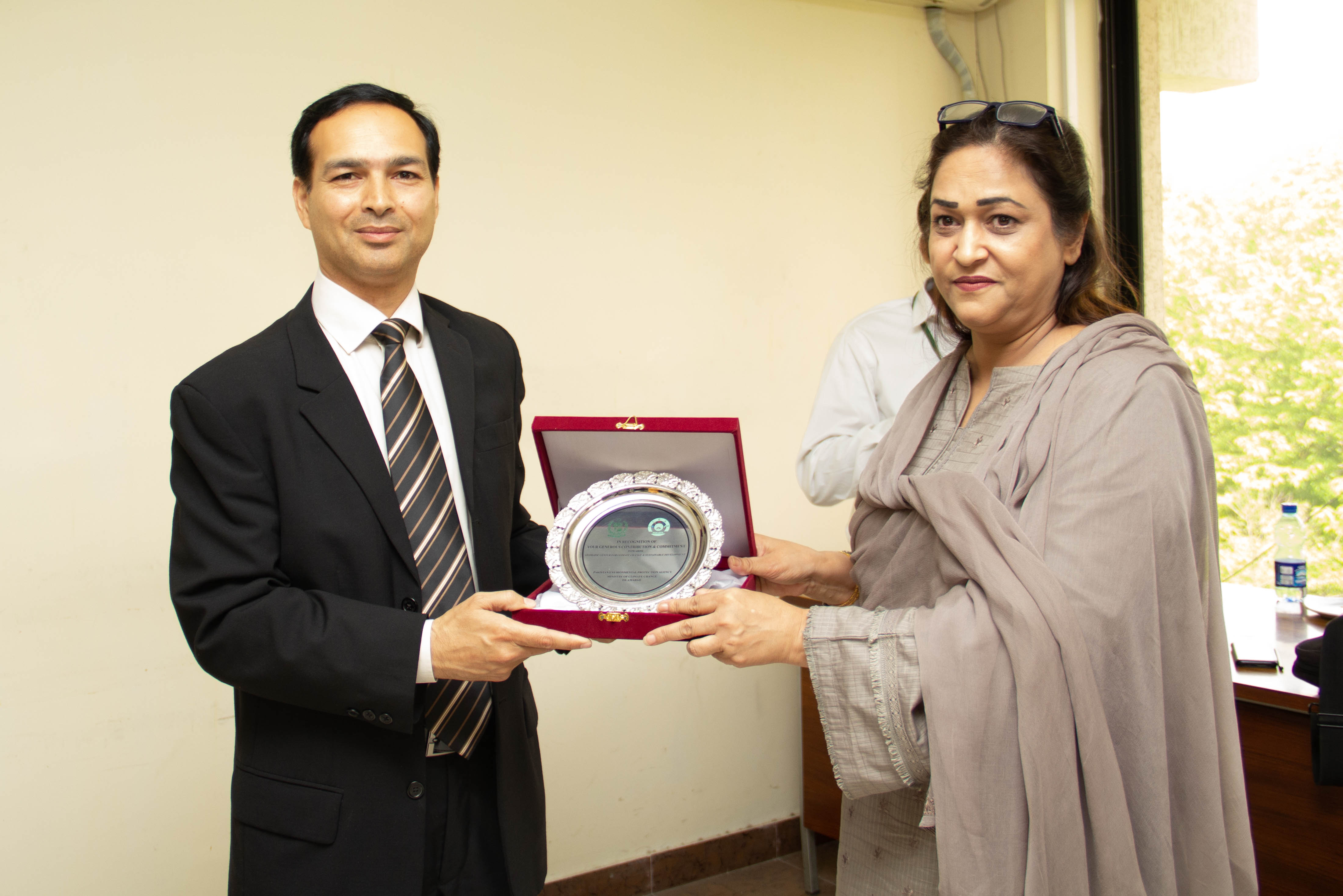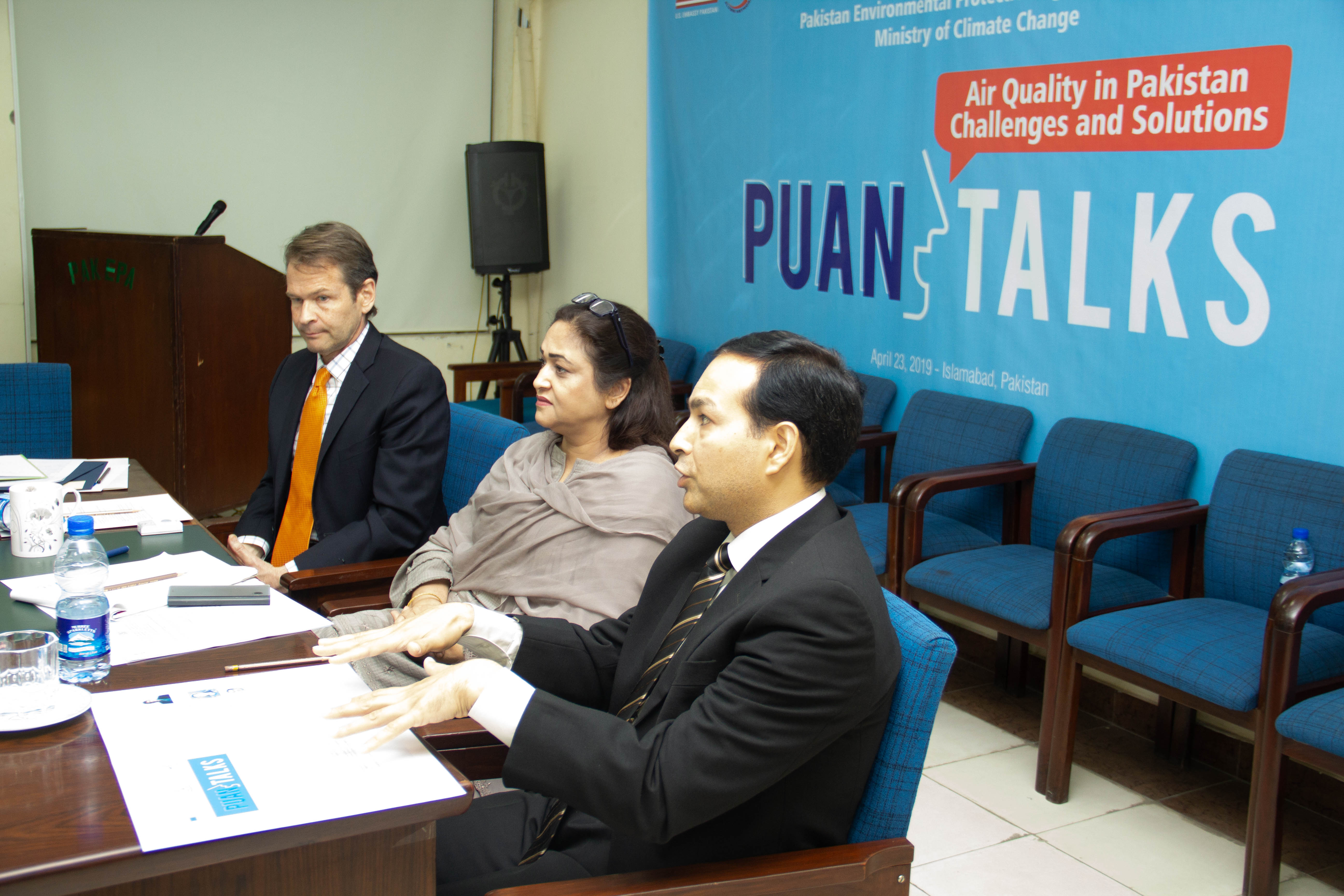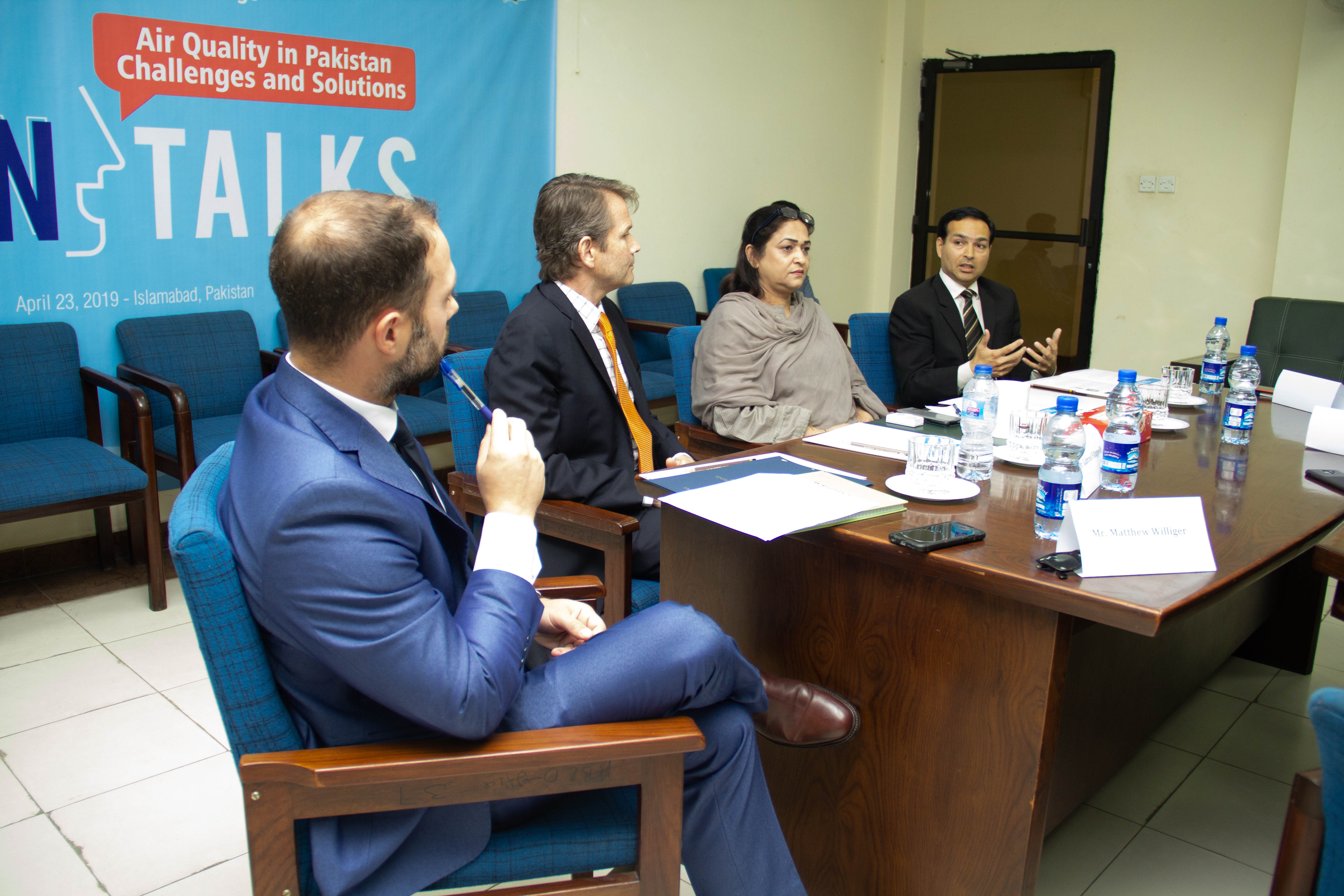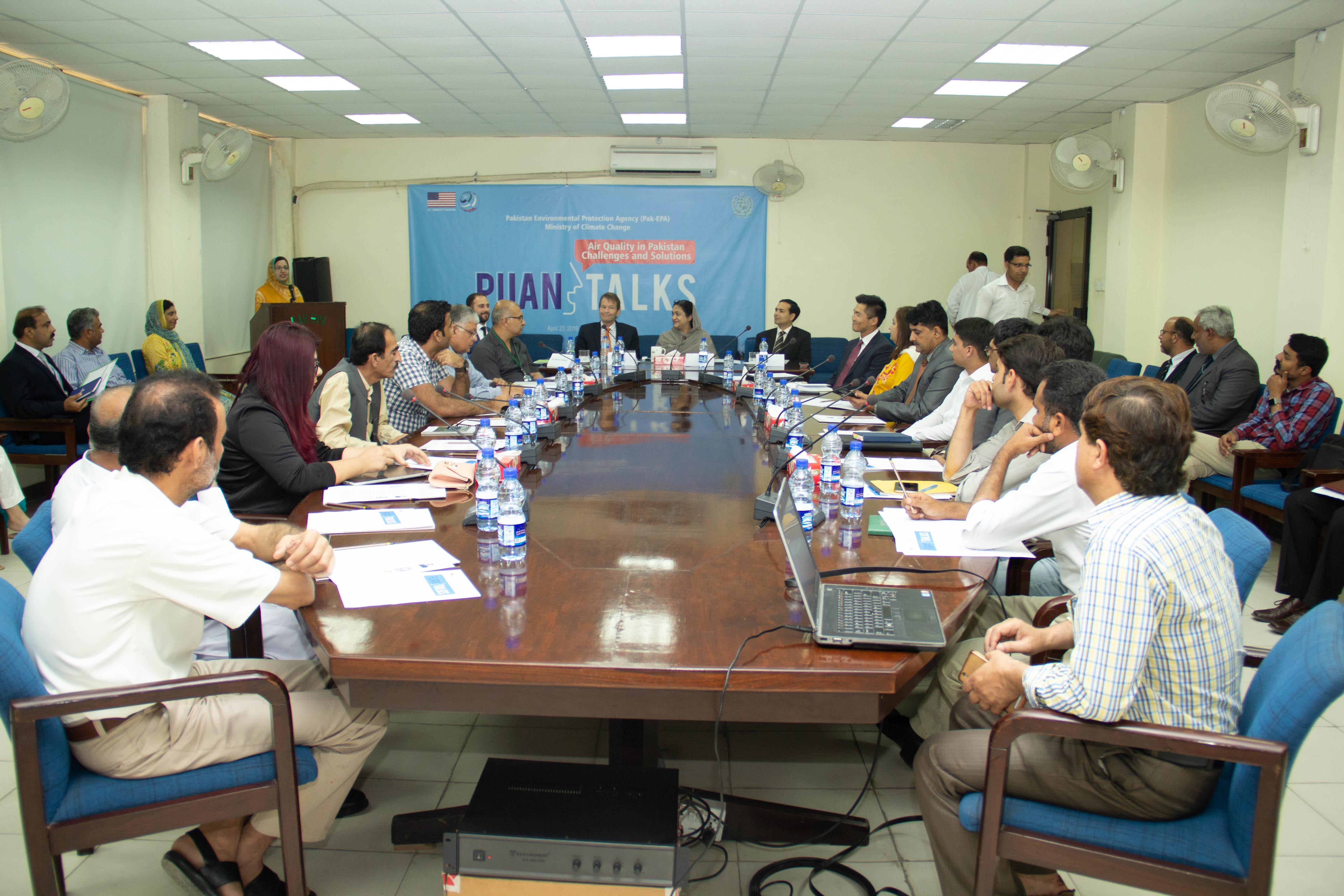- World Recycling Day 2019
- World Wetlands Day 2019
- Road Safety Seminar 2019
- 1st SDGs Summer Camp 2019
- Baragali Cleanliness Campaign 2019
2018(19) Session Events
Earth Day 2019
On Earth Day 2019, EnvSoc marked two separate events. One was a Seminar at the University of Peshawar, and the other was a Panel Discussion at the Federal Environmental Protection Agency (EPA), Islamabad. Details of both events are provided below:
(1) Earth Day Celebrated in a Seminar at UoP
Every year on April 22, Earth Day is celebrated globally to spread awareness about the importance of earth’s resources and environmental protection. The theme of Earth Day 2019 is ‘Protecting Our Species’.
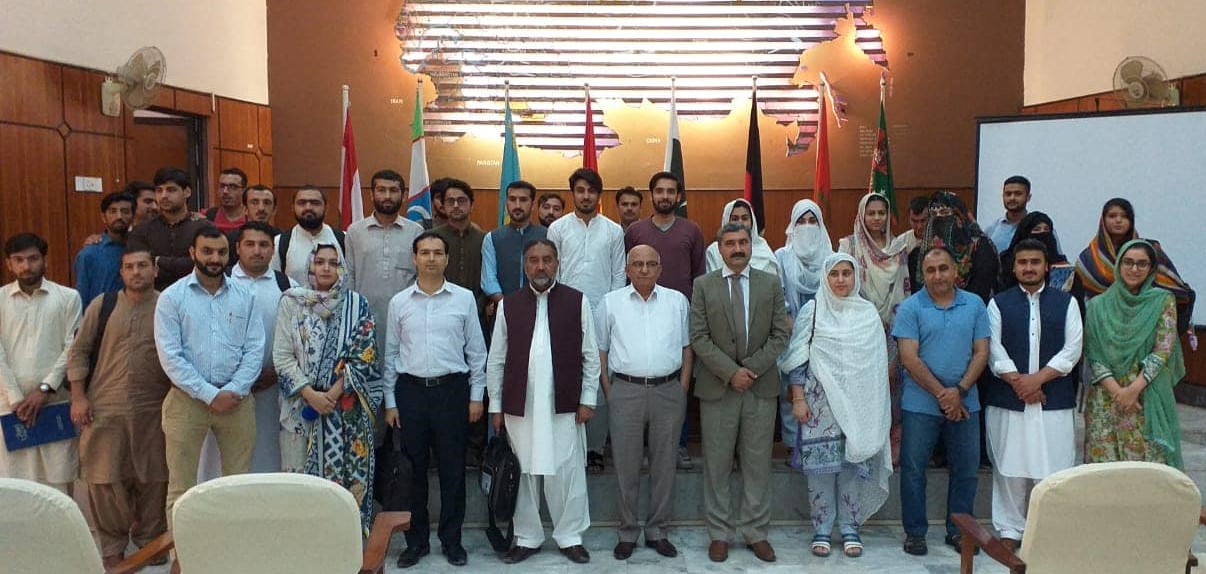
The Environment Society organised a mega event comprising of a Seminar followed by delivering presentations to the relevant departments of UoP to mark Earth Day 2019. The aim was to create awareness about the human made threats to the ecological species.
The Organiser of the Society, Dr Asif Khan Khattak, welcomed the guests and explained the importance of celebrating Earth Day for environmental protection and awareness. He said “There are several SDGs that directly link with the central idea of Earth Day”.
Speaking on the occasion, Mr Safdar Ali Shah, Chief Conservator of KP Wildlife Department, regarding species protection, said that “We are not owners, we are just the users of natural resources and we have obligation to pass it on to future generations in a sufficient quantity and better quality”.
Professor Dr Shafiq-ur-Rehman, Advisor to Higher Education Department, KP, and ex-Chairman of the Department of Environmental Sciences, UoP, in his talk highlighted the role of Mother Earth and its importance. He said “Planet Earth is our Mother, as it feeds us and nurtures us like a mother. So we have to protect our it and its Resources rather than becoming greedy and over exploiting it”.
The Chief Guest of the occasion was Mr Saif Ullah, Patron of Student Societies and Provost UoP, and he shared his personal experiences related to all the environmental protection activities taking place on campus.
Dr M Jamal Nasir, Deputy Director of Student Societies, UoP, thanked all the esteemed guests and appreciated the efforts of the Environment Society and highlighted that attending the seminar is not the aim of this event, the aim is to take an oath to spread the information and use resources wisely in the future.
Certificates were given to the cabinet members of EnvSoc and all the students who had registered and participated in the programme.
(2) Panel Discussion at the Pak-Environmental Protection Agency (EPA), Islamabad
To mark Earth Day, the April PUAN Talks theme was ‘Air Quality in Pakistan- Challenges and Solutions’. In spirit of Earth Day, the aim of the talks was to raise public awareness of the challenges, best practices, and ways forward related to air quality from the perspectives of Pakistani and American experts. This PUAN talk, in the form of a Panel Discussion, addressed the major questions of: How clean is the air we breathe? And how can Pakistan’s air quality be improved? The Organiser of EnvSoc, Dr Asif Khan Khattak, who is also a PUAN member, was one of the distinguished panelists for this event. Others included Dr Gabriel Filippelli, Professor and Director of Center for Urban Health, Indiana University-Purdue University, and Dr Farzana Altaf Shah, Director General of Pak-EPA. Matthew Williger, Environment Officer, U.S. Embassy, facilitated the discussion, questions, and comments. The event was held at the Pak-EPA office in Islamabad on 23.4.2019. The distinguished panel discussed the air quality issues in Pakistan shared their perspectives as panel speakers.
On the occasion, researchers, academicians, practitioners, and government officials tackled the various questions at PUAN Talks, a monthly series of discussions on various topics featuring PUAN members.
Panel participants agreed that better collaboration among various stakeholders is the key to addressing the emerging air quality problems of Pakistan. Dr Khattak used the example of students from the University of Peshawar who used the UN’s Sustainable Development Goals as a motive to interact with partners for researching through emission monitoring. Dr Filippeli shared the story of Los Angeles, California, which drastically improved its air by placing strict regulations on the automobile industry. Dr Shah shed light on the role of Pak-EPA to improve air quality.
Noting that air quality is a top priority for public health, the panel discussed what the U.S. and Pakistan can learn from its previous experiences with rising environmental challenges. This includes:
(1) Rapid environmental degradation and how academics and professionals can bring awareness to rising environmental issues.
(2) The potential for better collaboration between academia and government institutions to assess and improve air quality.
(3) Generating skilled human resources through effective environmental research.
The event concluded with the unanimous agreement from all the participants that the government and universities should work towards bridging the gap between the policy makers and the academia and coordinate efforts to draft the Pakistan's first national policy on air quality.
